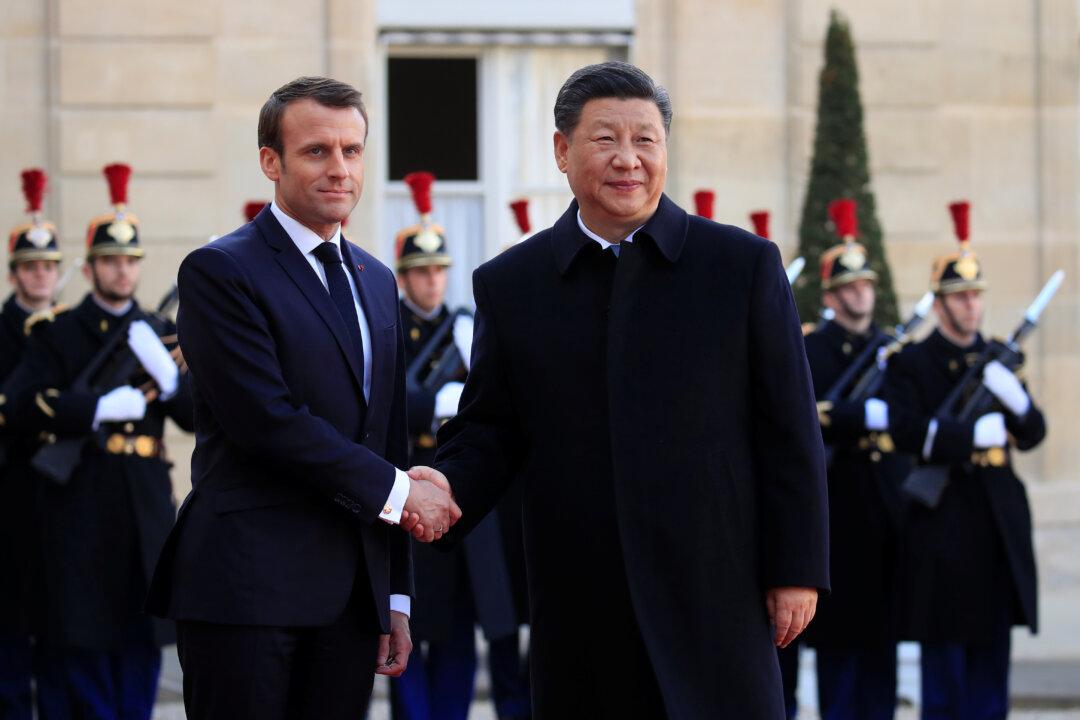PARIS—France and China have signed agreements worth billions of dollars, including a huge Airbus plane order, during a visit by Chinese President Xi Jinping, even as Paris pushed back against Beijing’s One Belt, One Road infrastructure initiative.
President Emmanuel Macron wants to forge a united European front to confront unfair Chinese trade and investment practices.





